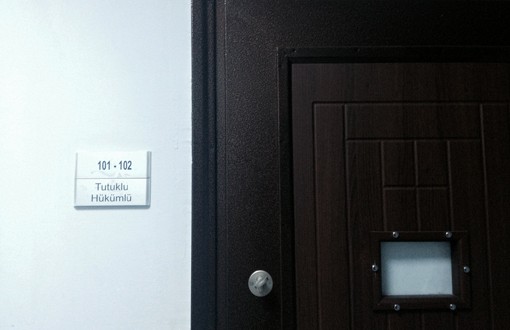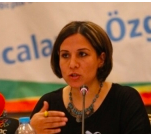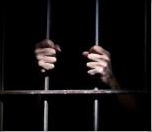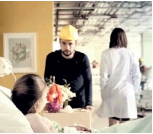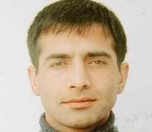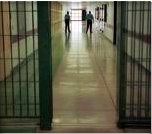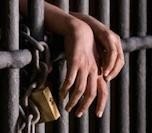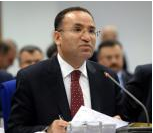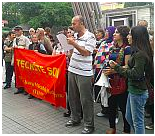Meet Turkey’s Cancer Patient Inmates
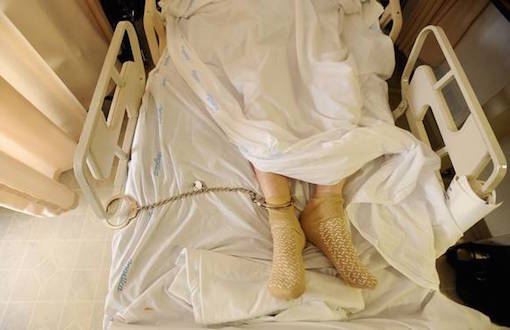
Today [Published originally in Turkish yesterday] is World Cancer Day and according to a report released by a parliamentary commission in 2011, around 400,000 people are battling with cancer in Turkey.
On the other hand, according to statistics released by Human Right Association (IHD) from individual applications and news coverage, Turkey’s prisons house at least 33 cancer patients whose conditions are getting worse day by day. IHD officials warn about the possibility that they might not have reached all cases.
bianet approached the issue of cancer thriver inmates from various perspectives: What are the challenges that cancer patient inmates face during their treatment?
What sort of additional issues do cancer patient inmates experience differently from non-jailed cancer patients? What hardship do families of cancer patient inmates confront? What are the legal obstacles against cancer-related releases?
Saip: No way to treat patients in prison conditions
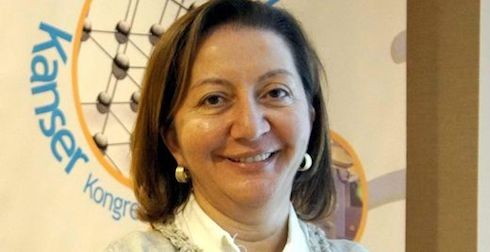
Emphasizing that cancer is a process requiring an urgent intervention, Turkish Medical Oncology Association Chairwoman Prof. Dr. Pınar Saip told bianet that limited treatment options seriously affected patients’ overall survival, especially from the very diagnosis.
“Back in 2009, we have reflected on the issue and wrote up a report. According to the report, we concluded that there is no way to treat cancer patients in prisons nor keep them there during their terminal stage.
“We believe that these conditions can only be met in reference oncology centers for cancer treatment or in hospice-like institutions for patients in terminal stage. “These oncology centers can also help alleviate the burden of Forensics Institute for the treatment and follow-up stages.”
Armay: Traumatic stress surges dramatically in prisons

Psycho-oncologist Zeynep Armay told bianet that cancer patient inmates suffered from multiple traumas in contrast with non-jailed cancer patients.
“Cancer patient inmates suffer from several psychological traumas. While being in prison is already a trauma, cancer diagnosis start a whole new series of traumas.
“As a matter of fact, being in prison is an external psychological trauma, which refers to a condition caused by external factors. Cancer-related traumas, on the other hand, are caused by internal psychological traumas.
“The commonality between these two traumas is that individuals are pushed to isolation and stigma. Therefore, we can say that trauma gets even worse for cancer patient inmates.”
Armay also added that cancer patient inmates’ self-defense gradually compromised as they lacked emotional and informational support:
“Cancer patient inmates usually experience a sense of isolation, desperation, hopelessness and incertitude. They feel entrapped between the two traumas and they gradually let go of their grip.”
“My husband wasn’t allowed to go to follow-up controls”
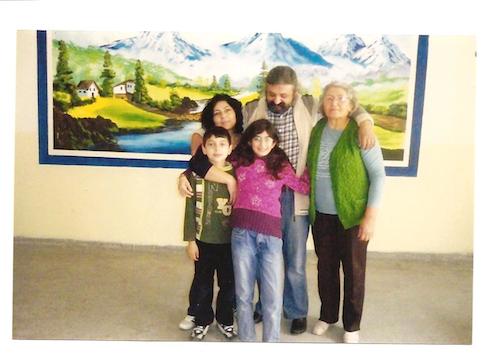
* Erol Zavar and his family (Photo credit: gorulmustur.org)
Yıllardır tahliye bekleyen mesane kanseri Erol Zavar’ın eşi Elif Zavar, tam da Zeynep Armay’ın işaret ettiği çaresizlikten bahsediyor:
“We have to watch my husband’s health with great care. But it is not possible. We feel desperate because we can’t take any initiative. It is all up to the authorities. They don’t watch him closely, they don’t care. And most dramatically, they don’t let us that either…”
In 2000, Ankara 2nd State Security Court (DGM) ordered life sentence for Erol Zavar, editor-in-chief of leftist Odak Magazine. He was accused of “changing the constitutional order by force”. Despite being operated 9 times, Zavar’s situation is getting worse gradually.
“Prior to his imprisonment, my husband was having cancer treatment for 3 years,” said Elif Zavar. “He had a surgery. According to doctors, his situation will be much better if he could have routine treatment for two more years. After he was jailed, he couldn’t even go to his routine controls until his cancer relapsed.”
“They want me to leave her in a coffin"
Erol Zavar is currently jailed in Sincan High Security Prison. His wife Elif Zavar lives in Ankara and pays regular visits to her husband.
“I feel upset that my children are growing up without their father. I don’t believe that he will ever be released within the existing judicial system in Turkey. The government is massing up people’s health. There are many families like ours. Our lives are oscillating between prisons and homes. We can only meet in demonstrations.
“We can’t provide any medication to my husband. This even includes alternative herbs and remedies. My husband’s treatment depends on only whatever one doctor prescribes him.
“He is definitely not able to take care of himself alone. He can’t even wash his own clothes, his prison mate is doing for him.’’
Elif Zavar said that her husband’s spirits are high despite all the negative conditions.
“Once he told me something that I can never forget: Elif, they want me to leave her in a coffin but I will thrive till the end.”
Cancer patient and “public safety”

* Forensics Institute building, Ankara
So, how far can cancer patient inmates strive? Gülizar Tuncer, one of IHD’s advocates, lists the steps towards release as follows:
* Public hospital councils within the administrative district of patient inmate’s prison issues a report saying that the patient is diagnosed with cancer.
* The patient inmate is transferred to Turkey’s Forensics Institute for further screening and re-diagnosis (as authorities don’t rely on hospital reports).
* Forensics Institute 3rd Expertise Chamber issues a report saying that the patient “can’t sustain his life in prison”.
* An additional opinion is requested from prosecutors regarding the patient inmate. In order to do that, the prosecutor asks further recommendation from police authorities on whether the inmate “poses a security threat to the society”.
* The patient inmate is released if all criteria are reached.
Skins turning into lime color and smell of the nature
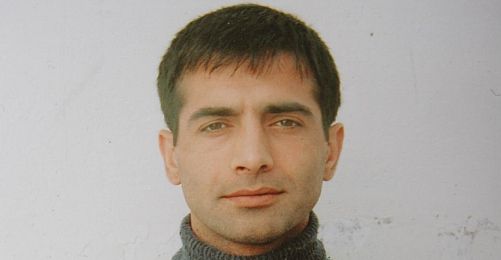
bianet also interviewed Taylan Çintay, a cancer patient who has been released in August 2013. Joined the PKK movement at the age of 20, Çintay has been captured and jailed at 21. While he was serving his life sentence, he was diagnosed with bladder cancer and went through 5 surgeries.
“I was pretty healthy before my imprisonment. Everything happened after I got into prison,” said Çintay.
“People’s skin turn into a lime-like color after a while. You are expected to serve you sentence with no expectations whatsoever. Moving around, heating, cooling…everything is flawed. As a result of this, the body starts to destruct itself. Authorities urge us to convalesce in prisons. But prison conditions are the very reason that we got cancer. They are mocking with us.”
Çintay: “All sick inmates must be freed"
Çintay believes that all cancer patient inmates must be released immediately “regardless of whatever crime they have committed” as his health seriously improved after his release.
“I had another surgery after the release and received local chemotherapy. I feel much better now,” he said.
“The conditions of the outside world, its rich resources, my family and my new treatment options had a positive impact on my over well-being and health. If you are surrounded by people who love you, you heal more quickly.’’
Lastly, we asked Çintay about he is spending his daily life nowadays.
“I am in Mersin at the moment. I am smelling the sea,” he laughed.
“We have to be able to reconnect ourselves with the smell of the nature. People used to go up in the high plateaus to get some fresh air when they were sick. The nature must intertwine us, we should not forget that we are a part of the nature.” (BM)
“I Lost Control With Cancer And Found it Again With Running”
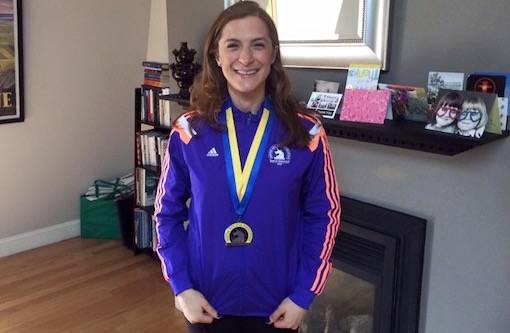
BARIŞ MUMYAKMAZ INTERVIEWED
“I Come From A Land Where Soccer is Women’s Game”
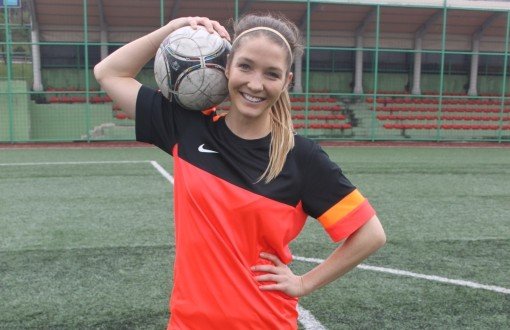
SATURDAY MOTHERS/PEOPLE
Saturday Mothers Commemorate Armenian Intellectuals of 1915
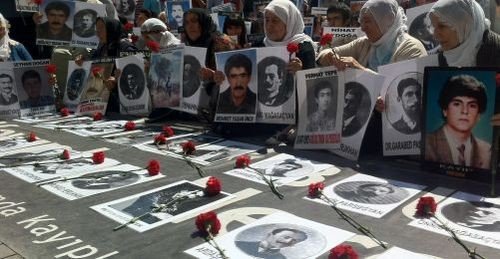
Gezi Park Emerges As Istanbul's New Alternative Hub
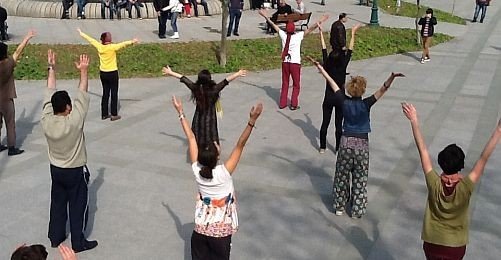
SATURDAY MOTHERS / PEOPLE
Saturday Mothers Commemorate Nurettin Yedigöl on Week 420






